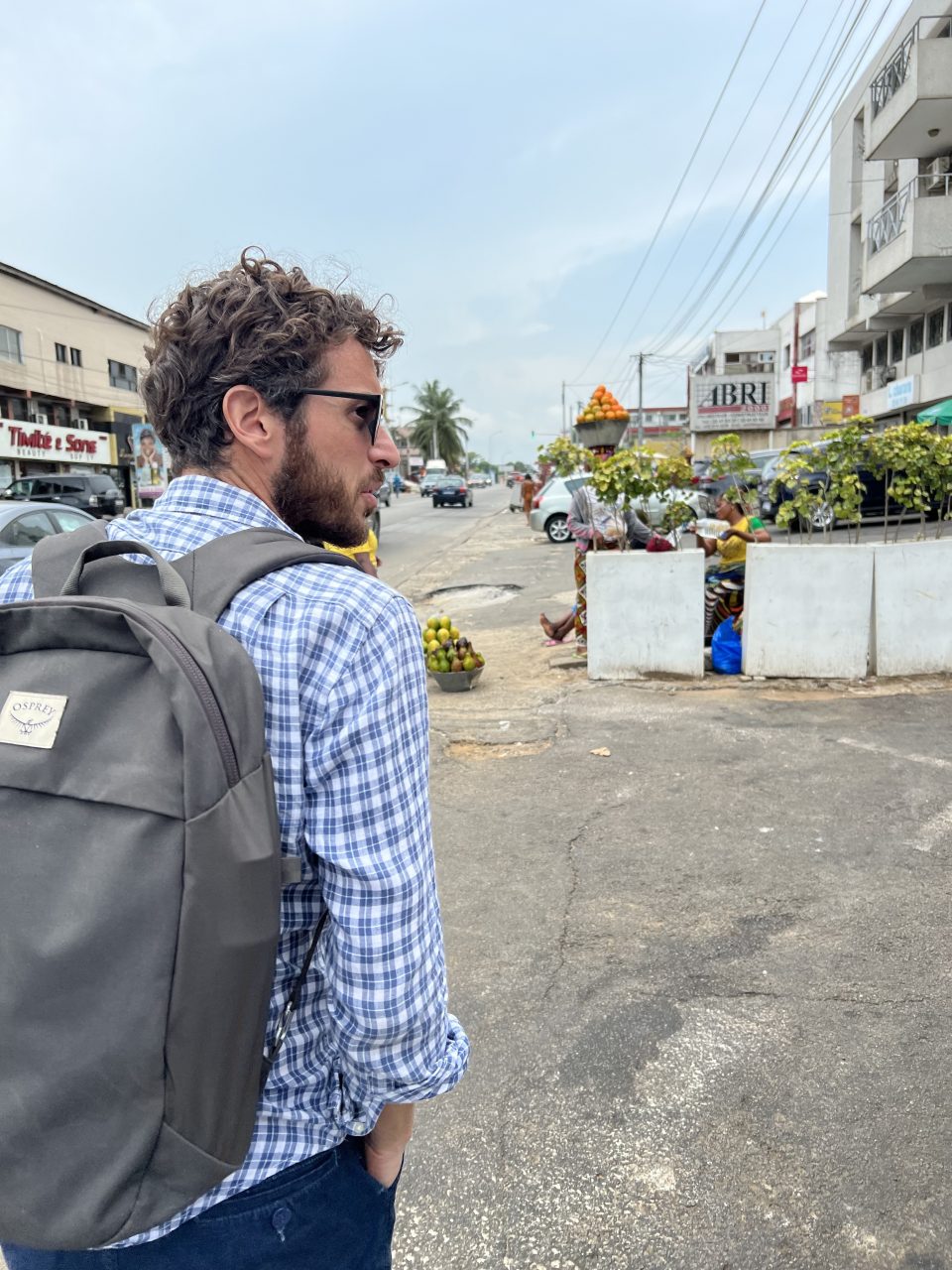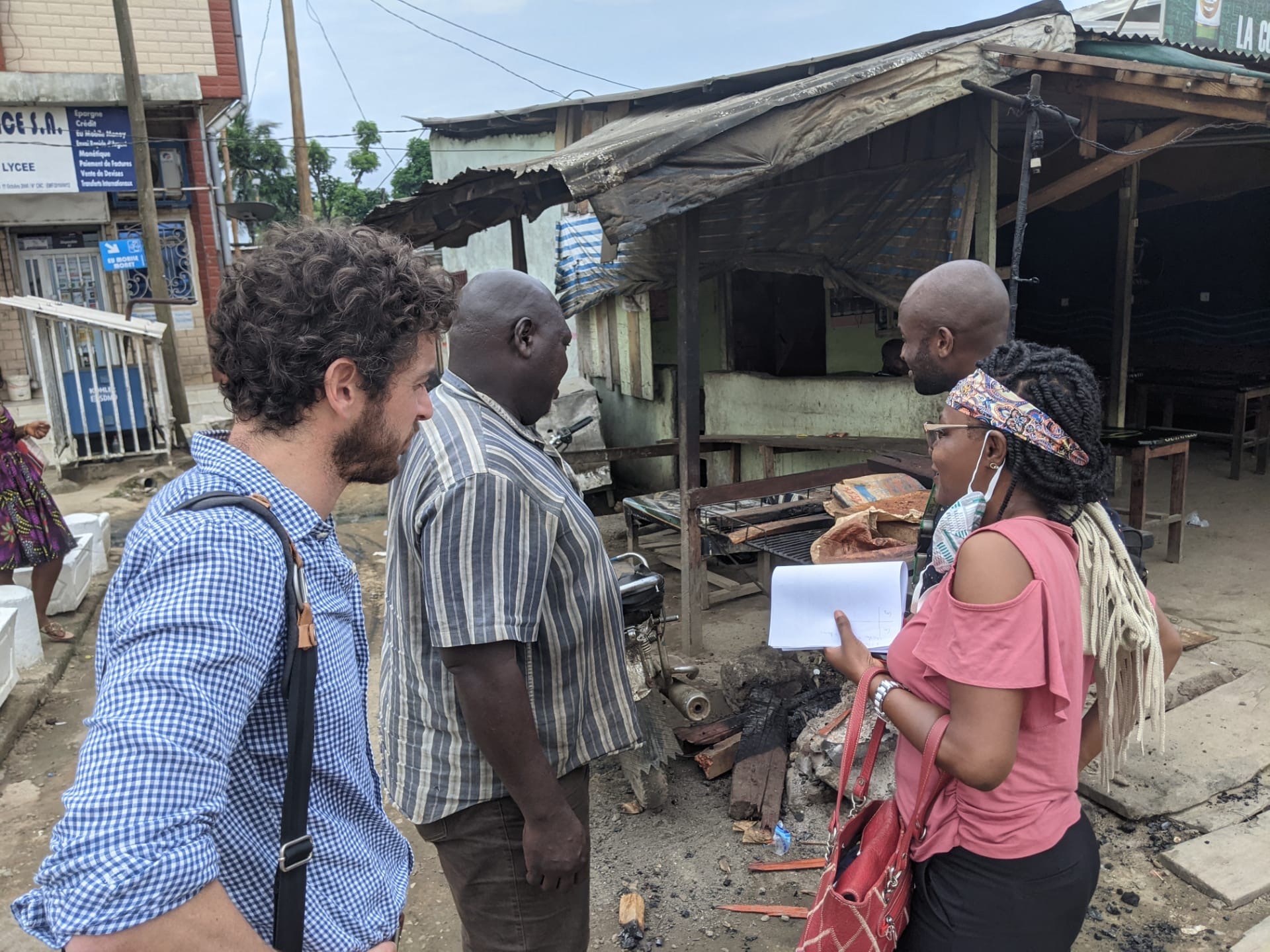Astrid: Where are you from, and where do you live now?
Thomas: I’m from Bordeaux, France, and based in Montreal now.
What’s your role at Rubyx?
My title is Chief Customer Officer at Rubyx, but practically that means a few things. On one hand I handle business development, which means I and my team get together with prospective partners and clients to explore what’s possible to do together. And then when we sign a partnership or contract I coordinate the implementation of that solution
So, in that sense you’re also a project manager.
Yes. Because I have experience in product design and process design, I also create and lead workshops on implementation. For example, on the business rules that we want to apply for a specific loan product, process implementation, the client’s business plan. And sometimes training for the field staff, because I have experience working with a lot of different stakeholders, from loan offices to branch managers, CEOs to risk managers.
You wear a lot of different hats! What prepared you for that?
I spent my first 15 years in the microfinance industry, working at a nonprofit that was implementing projects supporting entrepreneurship in emerging markets – my projects focused on Africa. From there I moved to the Baobab group, where I helped launch an affiliate in Tunisia before joining the innovation team.
And that’s how you met Denis Moniotte?
Yes, our CEO here at Rubyx. He managed the innovation team at Baobab. After a few years on his team I left to become an independent consultant in microfinance. And then one day Denis called me up. He’d left Baobab with the idea of creating Rubyx, and he invited me to join him.
What attracted you to the idea of Rubyx?
Just like at any big organisation, at Baobab there were internal struggles, challenges of adoption, people digging in their heels and trying to stick to their traditional way of doing things. On the innovation team we used to joke, “Imagine if it were just us – it would be so fast and easy!”
So you joined Denis in starting Rubyx.
Our idea was to build a team of people that had done great stuff at Baobab and build products that we could bring to market. We’re united by a shared vision and a way of doing things. We knew each other, and we knew we could work well together – and the adventure of entrepreneurship sounded pretty exciting!

How does your past in microfinance inform what you do now?
When I worked for an NGO, I spent a lot of time in the field, in Madagascar and then another in Comoros, and I was in touch with small entrepreneurs on a daily basis. Later at Baobab, first in Tunisia and then in Senegal, we applied human-centred design methodology, which involves spending a lot of time visiting the people you want to develop products for. The people were all microfinance customers, the same kind of end users Rubyx is serving now. It taught me to understand the realities of the people we’re still trying to serve – and that’s very important. It’s key.
But the end users are just one part of the equation, right?
There’s also the institutional side, which I also got to see at Baobab, and then later as a consultant when I was in charge of implementing innovation, projects and products. I spent a lot of time at the branches, training the loan officers, following them in the field. So these are two legs we’re standing on: knowing the end customers and knowing the staff that are serving them in the branches.
How does that knowledge help you now?
When we’re talking to a microfinance institution, we speak the same language. When they’re talking about their customers, or raising challenges regarding implementation and processes in the branches. When I was a consultant we did many of these kinds of projects in a short period of time. That experience really helps me bring value when I lead these workshops, discussing implementation and supporting the institution when they’re adopting our solutions, because I also know their side of the story and the project.
What personal qualities do you need most to succeed at Rubyx?
Autonomy, because most of our people are working remotely. Being open minded, because we work in many different cultures and contexts, and you need to be able to talk to somebody in Jordan in the morning, Algeria in the afternoon, and someone in India in the evening. And lastly you need to be flexible and adaptable, because we’re a very young startup and evolving all the time.
If you could give your younger self some advice, maybe 20 years ago when you were starting out in this field, what would you say?
I think I’d tell myself that it’s essential to spend enough time talking to the people that are really using your products and services. Sometimes people forget that. They’re in their offices or towers designing stuff, and it doesn’t work. You have to spend enough time talking to people, where they are, seeing their reality, seeing what they’re missing in terms of products and services so you can design the right products for them. I think that’s the most important.

